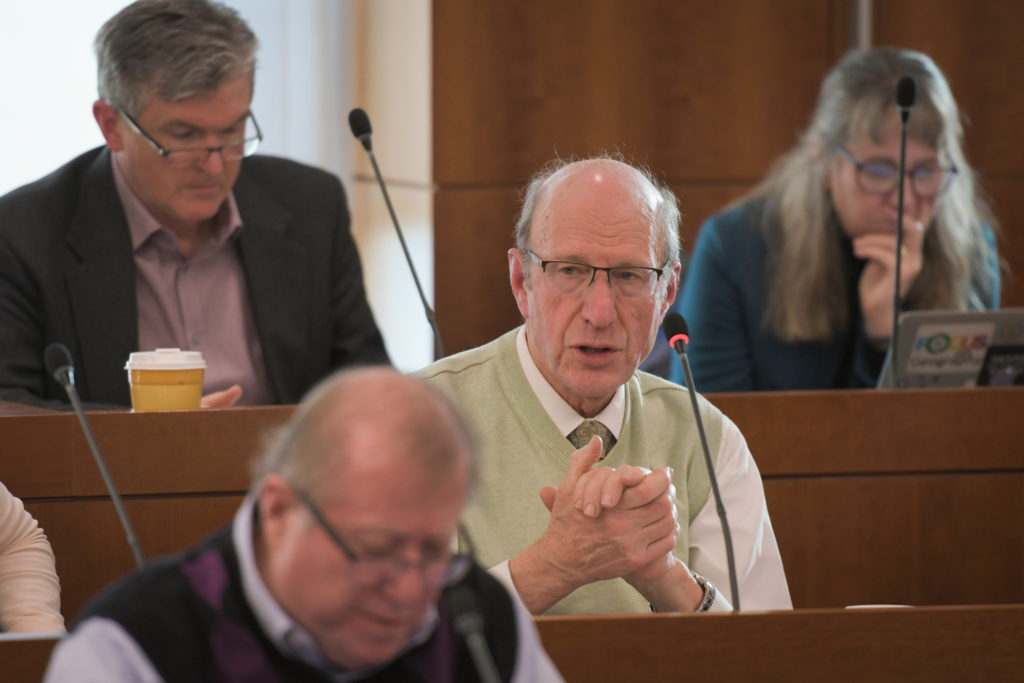The economics department is seeking three new faculty members to keep up with an increased demand for courses in the subject.
The department is looking to fill three new openings for assistant professors: one specializing in international trade and two in applied microeconomics, faculty said. Officials said they hope to fill the vacancies later this semester to accommodate high student demand and fill vacant spots after one of the department’s faculty retired last spring.
Sumit Joshi, the chair of the economics department, said the new faculty searches come after the department welcomed two additional faculty members last year to reduce the department’s reliance on adjunct professors. He added that the microeconomics professors would be hired through the Columbian College of Arts and Sciences, while the third faculty member would be hired through the Elliott School of International Affairs.
He said he hopes to complete the hiring process by the end of February.
Joshi said additional faculty will help the department meet demand from a “large” number of economics majors and minors. In recent years, student interest in economics has swelled, growing class sizes.
“The applicant field looks very promising, and we are excited at the prospect of bringing very strong candidates to GW,” Joshi said in an email.
Eric Arnesen, the vice dean for faculty and administration in the Columbian College of Arts and Sciences, said CCAS has authorized the hire of two new faculty positions in the economics department.
“The economics major is popular among our students, and the college is supportive of the department’s request for new faculty to meet demand and to contribute to its research environment,” he said in an email.
He declined to say how much it will cost to employ the professors.
Anthony Yezer, an economics professor heading a committee charged with vetting candidates for the applied microeconomics openings, said new faculty will “alleviate” pressure on economics professors who have crowded classes.
“Having new faculty members would actually help the department free up adjunct professors to teach other undergraduate courses,” he said.
Yezer said the department received 743 applications for the applied microeconomics openings in the fall and whittled the field down to 31 candidates, each of whom was interviewed earlier this month at the American Economic Association’s annual meeting in Atlanta. He added that GW’s close location to the World Bank, IRS and Census Bureau likely contributed to the number of applications received.
“It’s a good joint decision location for spouses who are both economists and want to do research,” he said.
He said the top candidates are set to visit GW in the next 20 days and the entire economics department will vote on their preferred candidates in the coming weeks. Following the vote, Joshi and CCAS officials will enter contract negotiations with those selected.
Yezer said the search committee considered factors like research experience, educational achievements and writing and communication skills when determining top candidates. He said the department also reviewed candidates’ references, most of whom guided them through their doctoral dissertation.
“The reputation of the dissertation director for producing outstanding scholars along with his or her evaluation of the current applicants can be an important consideration,” Yezer said.
Maggie Chen, a professor of economics and international affairs who heads the search committee for the international trade faculty position opening, declined to comment.





